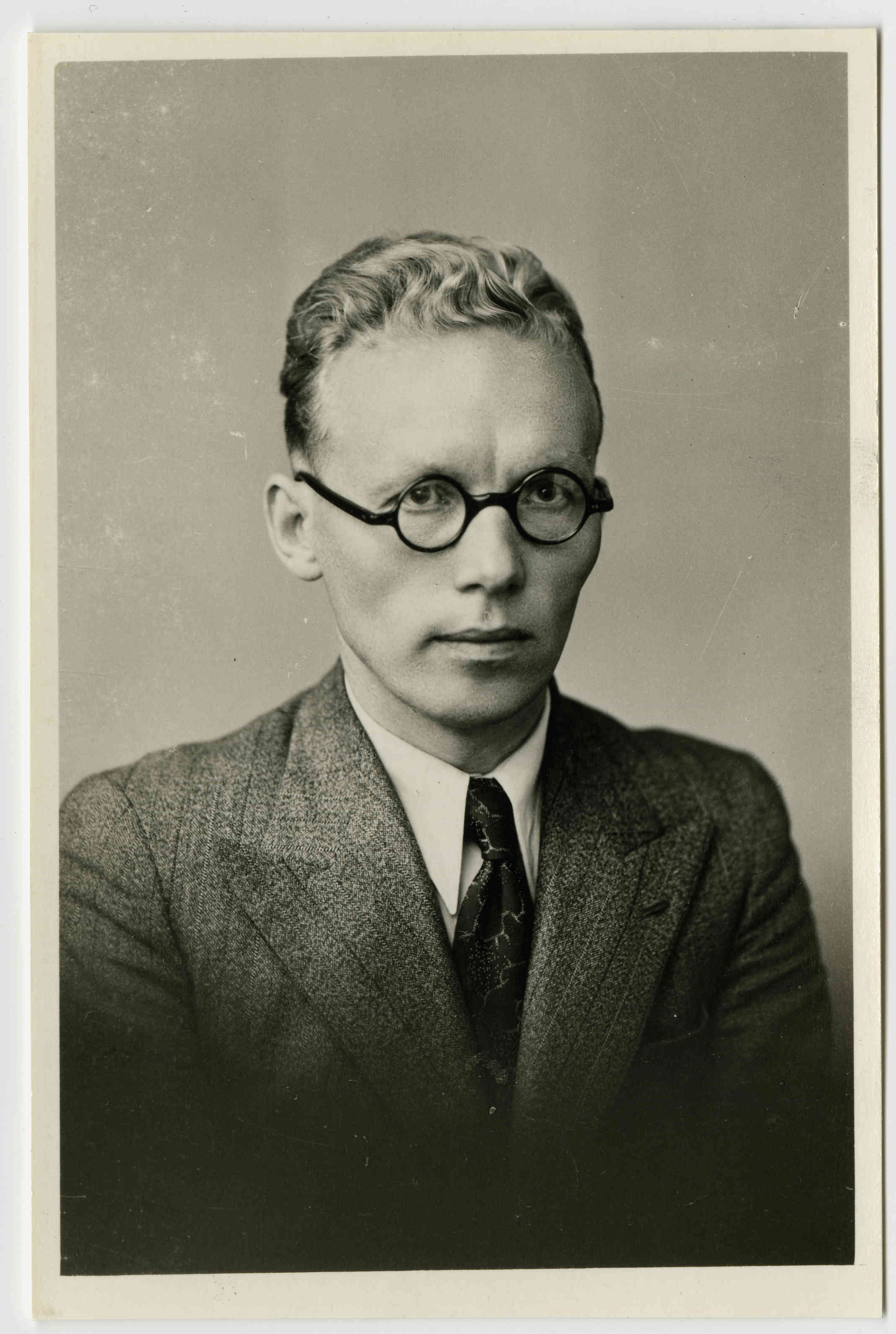
Juhan Madarik
Juhan Madarik (given name Johannes Lauristin, 29. / 17. X 1899 – 28. VIII 1941) was one of the most influential Estonian Communist revolutionaries, a prose writer and commentator.
He was born in Tallinn, and spent his childhood in Kuivajõe parish in Harju county, was educated at Kose-Uuemõisa and later in Tallinn. He worked in a factory and was involved in the workers’ movement from an early age. From 1917 he was a member of the EKP (Estonian Communist Party, which was an illegal party in Estonia from 1920 to 1940). In 1922 he worked in the editorial offices of the newspaper Tallinna Tööline (‘Tallinn Worker’) and the journal Noor Tööline (‘Young Worker’). He was elected to the board of the central council of trade unions and to the central committee of the EKP, and was a member of the second convocation of the Riigikogu (parliament). Because of his political activity he was arrested in 1923, released in 1931, and rearrested straight afterwards. He was released in an amnesty in 1938. He was an active participant in the Sovietisation of Estonia in 1940. He was Chairman of the council of People’s Commissars of the ESSR, secretary of the central committee of the EKP, a delegate to the Supreme Soviet of the USSR, and at the beginning of the war between the Soviet Union and Germany, deputy chairman of the ESSR defence committee. The circumstances of Lauristin’s death are unclear. According to the official version he drowned while being evacuated from Tallinn aboard the warship Yakov Sverdlov, according to other reports he was murdered by the Cheka (the Soviet secret police). In 1946 Lauristin was awarded the Order of Lenin posthumously, during the period of Soviet Estonia a statue of him was erected in Tallinn, and institutions and streets in several Estonian towns were named in his honour.
He made his debut in prose fiction in the journal Noor Tööline. Most of his works were written in prison. His world-view and his political mind-set are clearly reflected in his works, where the workers and the communist movement set the tone. The novel Riigikukutajad (‘The Overthrowers’) was written in the period from 1925 to 1927; the manuscript, smuggled out in secret, was published in Leningrad in 1929. The novel focuses on the underground activities of the Estonian Communists: the characters are sketched schematically, the style is laconic. Also schematic is what was intended as a five-volume novel, Vabariik (‘The Republic’), the first book of which was completed (published 1941). The second and fourth volumes appeared in outline form (in 1953); the manuscripts of the third and fifth volumes have not survived. The main themes of the novel are workers’ conditions in Tallinn and the developing working class in the late 19th and early 20th centuries. Here too, the main attention is focused on events and conditions; less attention is devoted to describing the characters. His short prose is collected in Jutustused (‘Stories’, 1955) and Kordnik, lipp ja jalajäljed (‘Policeman, Flag and Footprints’, 1979).
A. K. (Translated by C. M.)
Books in Estonian
Novels
Riigikukutajad. Leningrad: Külvaja, 1929, 224 lk. [Järgmised trükid: 1950, 1970.]
Vabariik. I. Tartu: Ilukirjandus ja Kunst, 1941, 231 lk. [Järgmised trükid: 1947, 1953, 1970.]
Vabariik. Teosed. Tallinn: Eesti Riiklik Kirjastus, 1953, 584 lk.
Vabariik. Riigikukutajad. Tallinn: Eesti Raamat, 1970, 816 lk.
Short prose
Jutustused. Teosed. Tallinn: Eesti Riiklik Kirjastus, 1955, 416 lk.
Kordnik, lipp ja jalajäljed: valik jutustusi. Tallinn: Eesti Raamat, 1979, 155 lk.
Memoirs
Teist korda noor vang. Tallinn: Eesti Raamat, 1974, 39 lk.



